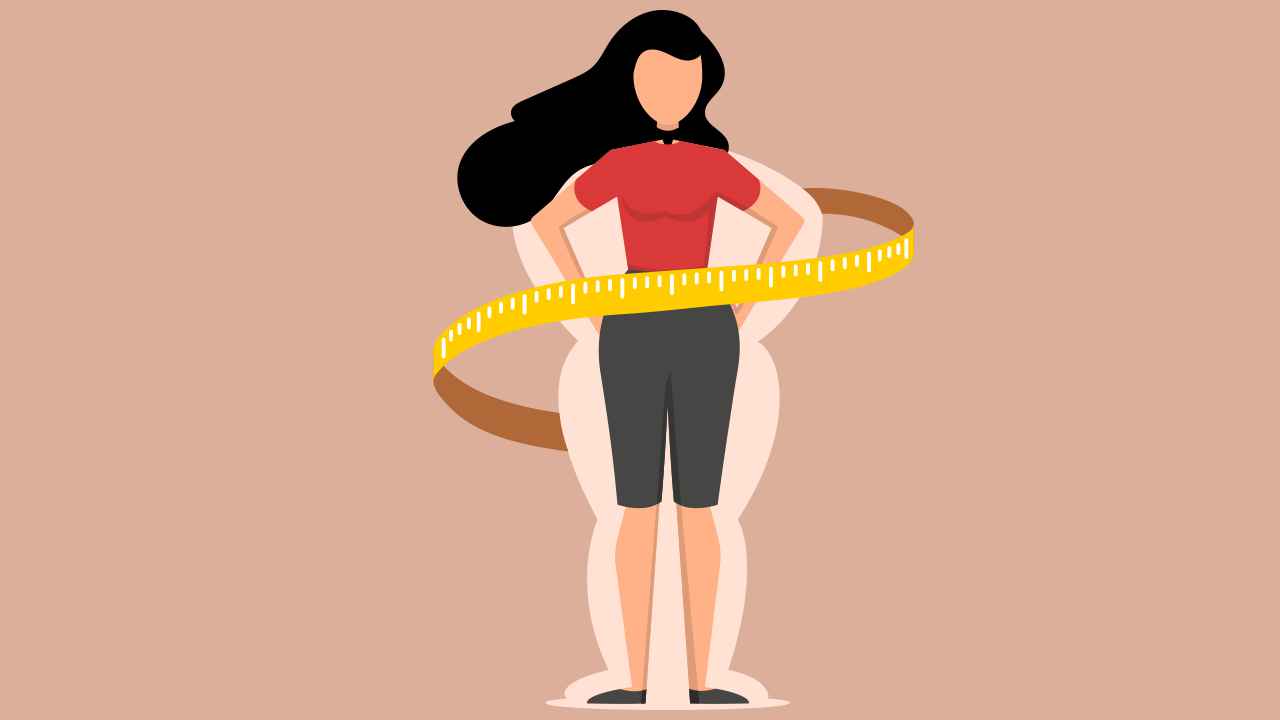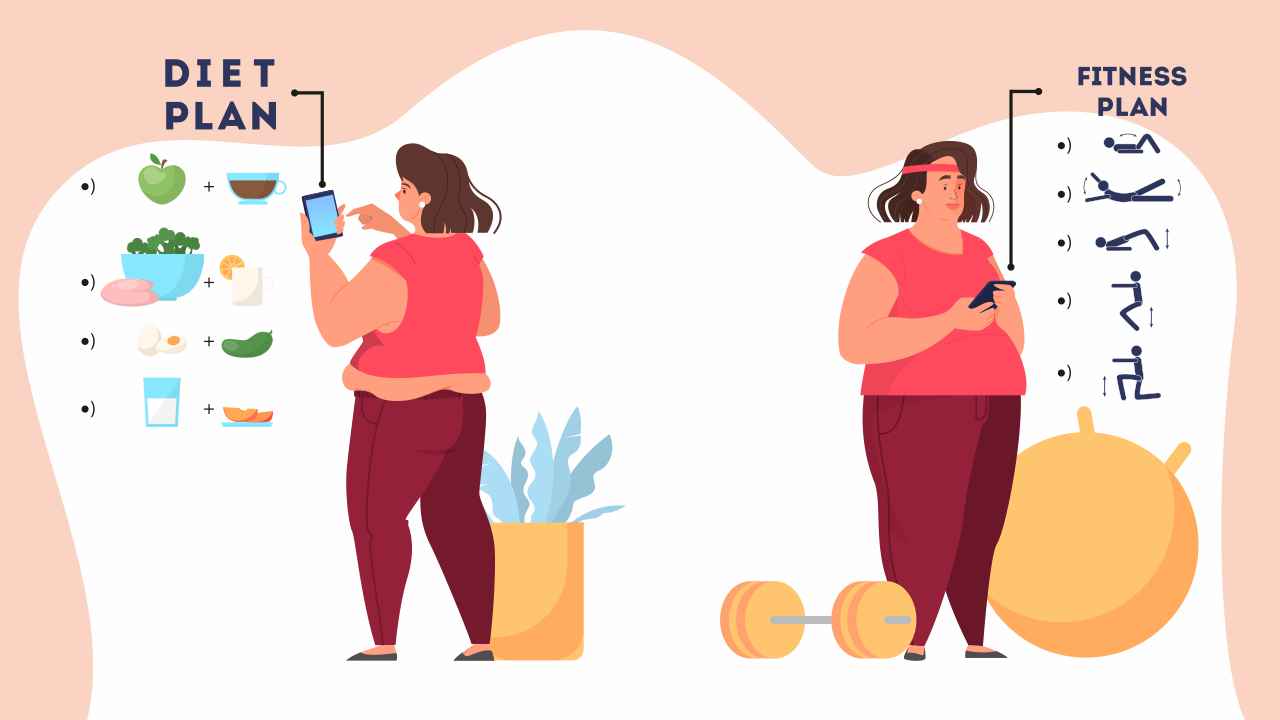
How Much Weight Loss Is Good for You?

Losing weight is great, but you need to know what should be the right amount of weight loss. When you are on a weight loss journey, it is important to address these questions:
- How much weight loss is suitable for your health?
- How much weight loss is healthy per week?
- Should you lose weight fast?
Let’s explore the answers.
How much weight loss is good?
To figure out how much weight loss is good for you, it is important to consider many aspects. Firstly, decide the goal for which you are trying to get on a weight loss journey. Determine whether the purpose for losing weight is due to cosmetic reasons, medical conditions like obesity and type-2 diabetes, or any other objective.
Once you have done that, you need to find out your ideal body weight. This number varies from person to person, depending on their height, body frame, muscle mass, bone density, water weight, and total body fat.
An effective, inexpensive way to find out whether you are at a normal weight range or not is by calculating your Body Mass Index (BMI).
Research suggests that for an average individual without any medical condition, an ideal weight loss should be 10% of the total body weight. However, there are many variants to this rule, and everyone needs to find what works for them.
Importance of BMI
BMI was originally designed as a way to indicate whether your weight is appropriate for your height, but it has been used as an indicator of possible health problems and obesity. BMI is calculated by dividing one’s weight by the square of one’s height.
If you are looking for a user-friendly method to compute your BMI, you may consider using the fitpage app. All you need to do is:
- Download the app via the App Store or Play Store
- Go on the ‘Body Analysis’ section at the bottom of the home page
- Choose whether you are calculating for yourself or someone else
- Enter the gender, weight, and height and do the calculation
The table below is an approximation of the BMI ranges that define whether someone is underweight, normal-weight, overweight, or obese.
However, do note that the BMI cut-off for Asians is much lower than other races because they have less muscle mass and a higher body fat percentage.
| Category | WHO (BMI) | Asian (BMI) |
| Underweight | Less than 18.5 | Less than 18.5 |
| Normal | 18-24.9 | 18.5-22.9 |
| Overweight | 25-30 | 23-27.9 |
| Obese | 30 or more | 28 or more |
How fast should you lose weight?
There is no one-size-fits-all answer to this. It depends on various factors like your age, gender, ethnicity, and overall health. However, a safe rate of weight loss ranges from 0.5kg-1kg a week.
To determine how quickly you should lose weight, calculate your Resting Metabolic Rate (RMR) first. This is the amount of energy the body needs to function at rest. It is also popularly known as Basal Metabolic Rate (BMR). Here is the RMR formula for men and women:
- Men: (10 × weight in kg) + (6.25 × height in cm) – (5 × age in years) + 5
- Women: (10 × weight in kg) + (6.25 × height in cm) – (5 × age in years) – 161
Once you know your RMR, multiply that with the physical activity level from the table below to get your Total Daily Energy Expenditure (TDEE).
| Activity level | Value |
| Sedentary: Desk job, little or no exercise | 1.2 |
| Lightly active: Light exercise 1-3 days per week | 1.375 |
| Moderately active: Moderate exercise 3-4 days per week | 1.55 |
| Very active: Hard exercise 6-7 days per week | 1.725 |
| Extremely active: Daily hard exercise, sports, or job requiring physical labor | 1.9 |
Now that you have figured out your TDEE, keep in mind that to lose 1kg of fat, you need to burn 7,700 calories. To accomplish this objective, you need to deduct 15%-25% from your overall calorie intake. Ultimately, this will amount to a 300-500 caloric deficit a day and approximately 3,500 calories per week, leading to a weight loss of 0.5kg-1kg each week.
However, this may differ among individuals. For instance, anyone who is overweight may need to cut more calories in comparison to someone who only needs to lose a few kilos. You should not aim to lose weight quickly because doing that is unrealistic and unsustainable.
Weight makes up several components of the body, including fat, muscle, bones, and water. So when it comes to weight loss we want to target the excess fat and not necessarily weight from the other components
It is not advisable to lose weight fast by going on extreme diets, as you may end up losing muscle mass along with fat. This may slow down your metabolism and lead to a weight loss plateau. The goal should be to lose all the excess fat in the body over a long duration.
Also read: What Is the Science of Weight Loss?
Weight loss in chronic medical conditions
When people are overweight, they may develop health problems. So, losing weight may help improve their medical conditions. A few life-threatening ailments are heart disease, diabetes, stroke, and cancer. Studies suggest losing weight may help reduce these risks substantially.
It is not clear what the optimal weight loss is for people with medical conditions. However, most experts suggest losing at least 5%-10% of the total body weight to decrease the risk of obesity-related diseases.
The recommendation for weight loss differs for individuals with varying medical conditions. So, it is essential to consult with your doctor before commencing your weight loss journey.
It is necessary to follow a healthy lifestyle to reach your weight loss goals successfully. Eating healthy and exercising should not just be temporary. They are pivotal for your long-term well-being.
Be patient during your weight loss journey. Do not expect rapid changes within a few weeks. The rate at which one loses weight is different for each person. Stay consistent and remember all the benefits of reaching and maintaining a healthy weight so that you stay motivated throughout your journey.
References
1. Sandowski SA. What is the ideal body weight? Fam Pract 2000; 17: 348–51.
2. Dragusha G, Elezi A, Dragusha S, et al. Treatment benefits on the metabolic syndrome with diet and physical activity. Bosn J Basic Med Sci 2010; 10: 169–76.
3. Maciak S, Sawicka D, Sadowska A, et al. Low basal metabolic rate as a risk factor for the development of insulin resistance and type 2 diabetes. BMJ Open Diabetes Res Care 2020; 8: e001381.
4. Case CC, Jones PH, Nelson K, et al. Impact of weight loss on the metabolic syndrome. Diabetes Obes Metab 2002; 4: 407–14.













